VIN = 3.6 V, VOUT = 5 V, TJ = 25°C,
unless otherwise noted
VIN = 3.6 V, VOUT = 5 V, TJ = 25°C,
unless otherwise noted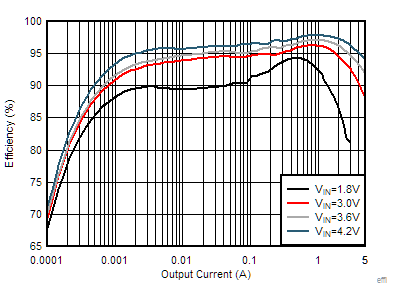
| VIN = 1.8 V, 3 V, 3.6 V, 4.2 V;
VOUT = 5 V |
|
|
|
Figure 6-1 Load Efficiency With Different
Input in Auto PFM. VIN = 3.6 V, VOUT = 5 V, TJ = 25°C,
unless otherwise noted 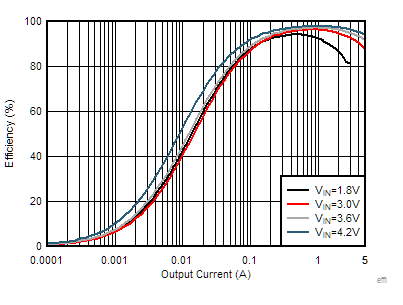
| VIN = 1.8 V, 3 V, 3.6 V, 4.2 V;
VOUT = 5 V |
|
|
|
Figure 6-3 Load Efficiency With Different
Input in Forced PWM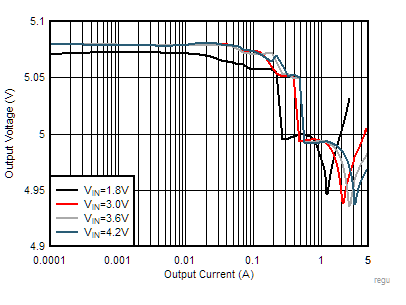
| VIN = 1.8 V, 3 V, 3.6 V, 4.2 V;
VOUT = 5 V |
|
|
|
Figure 6-5 Load Regulation in Auto PFM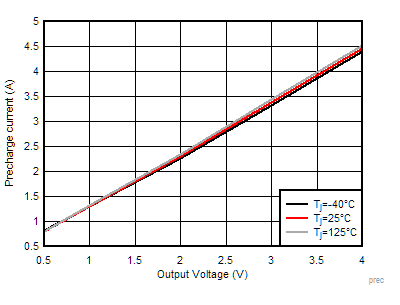
| VIN = 5 V; VOUT = 0.5 V to 4
V |
|
|
|
Figure 6-7 Pre-charge Current vs Output
Voltage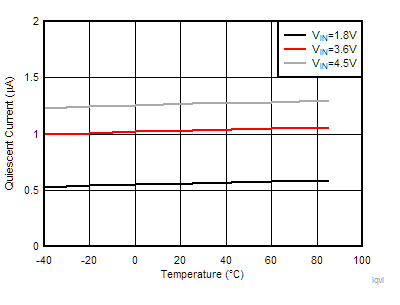
| VIN = 1.8 V, 3.6 V 4.5 V;
VOUT = 5 V, TJ = –40°C to
+85°C, No switching |
|
|
|
Figure 6-9 Quiescent Current into VIN vs
Temperature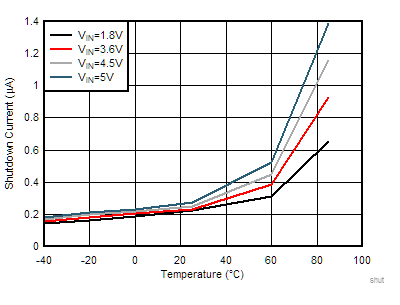
|
VIN = VSW = 1.8 V, 3.6 V, 4.5
V, 5 V; TJ = –40°C to +85°C |
|
|
|
Figure 6-11 Shutdown Current vs
Temperature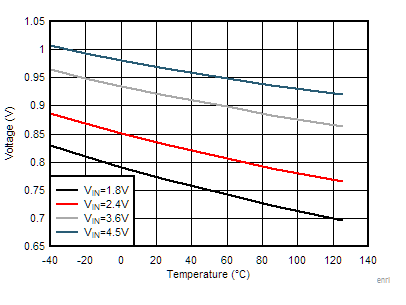
| VIN = 1.8 V, 2.4 V, 3.6 V, 4.5 V;
VOUT = 5 V; TJ = –40°C to
+125°C |
|
|
|
Figure 6-13 EN Rising Threshold vs
Temperature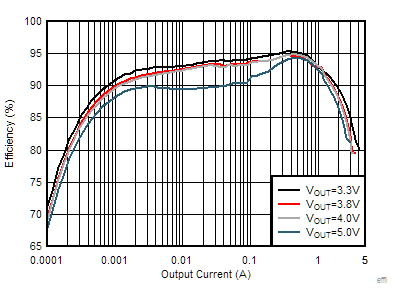
| VIN = 1.8 V; VOUT = 3.3 V,
3.8 V, 4 V, 5 V |
|
|
|
Figure 6-2 Load Efficiency With Different
Output in Auto PFM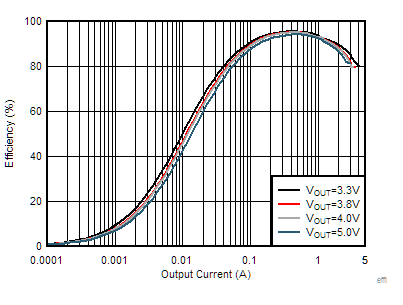
| VIN = 1.8 V; VOUT = 3.3 V,
3.8 V, 4 V, 5 V |
|
|
|
Figure 6-4 Load Efficiency With Different
Output in Forced PWM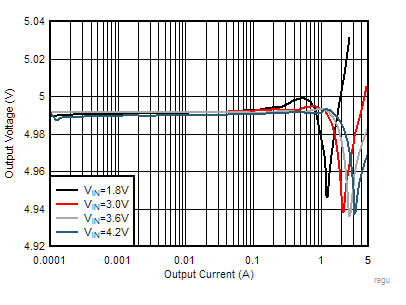
| VIN = 1.8 V, 3 V, 3.6 V, 4.2 V;
VOUT = 5 V |
|
|
|
Figure 6-6 Load Regulation in Forced
PWM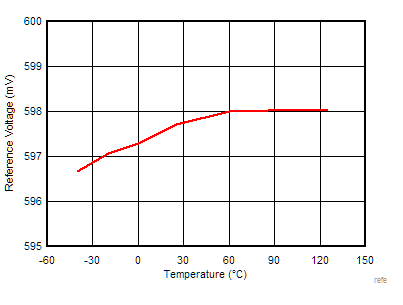
| VIN = 3.6 V; VOUT = 5 V,
TJ = –40°C to +125°C |
|
|
|
Figure 6-8 Reference Voltage vs
Temperature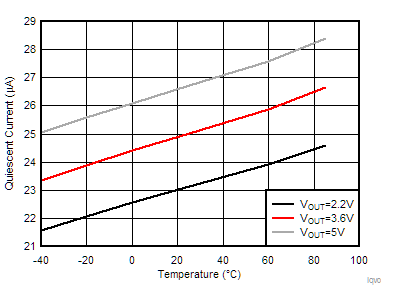
| VIN = 1.8 V; VOUT = 2.2 V,
3.6 V, 5 V, TJ = –40°C to +85°C, No switching
|
|
|
|
Figure 6-10 Quiescent Current into VOUT vs
Temperature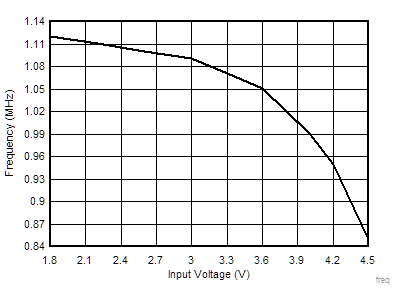
| VIN = 1.8 V to 4.5 V; VOUT =
5 V |
|
|
|
Figure 6-12 Switching Frequency vs Input
Voltage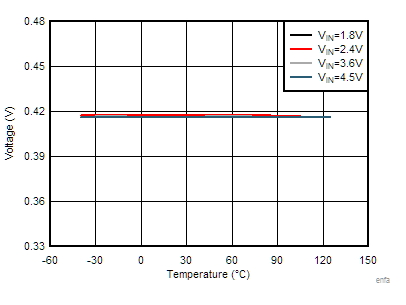
| VIN = 1.8 V, 2.4 V, 3.6 V, 4.5 V;
VOUT = 5 V; TJ = –40°C to
+125°C |
|
|
Figure 6-14 EN Falling Threshold vs
Temperature














